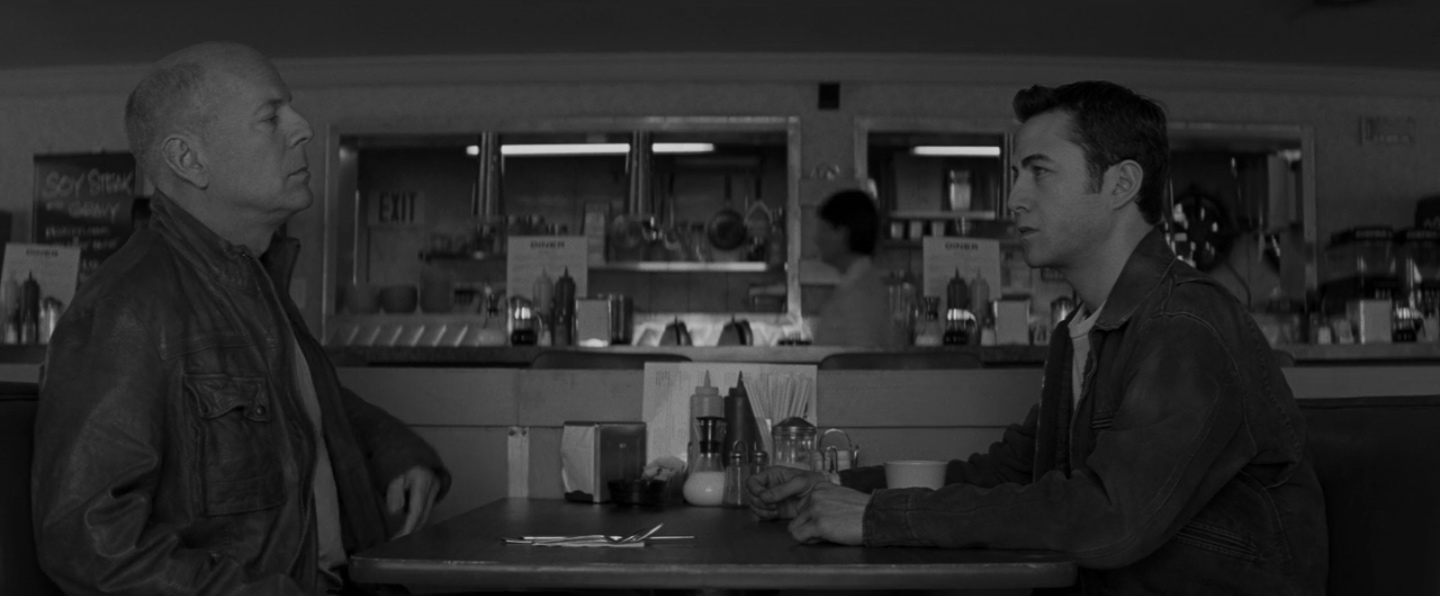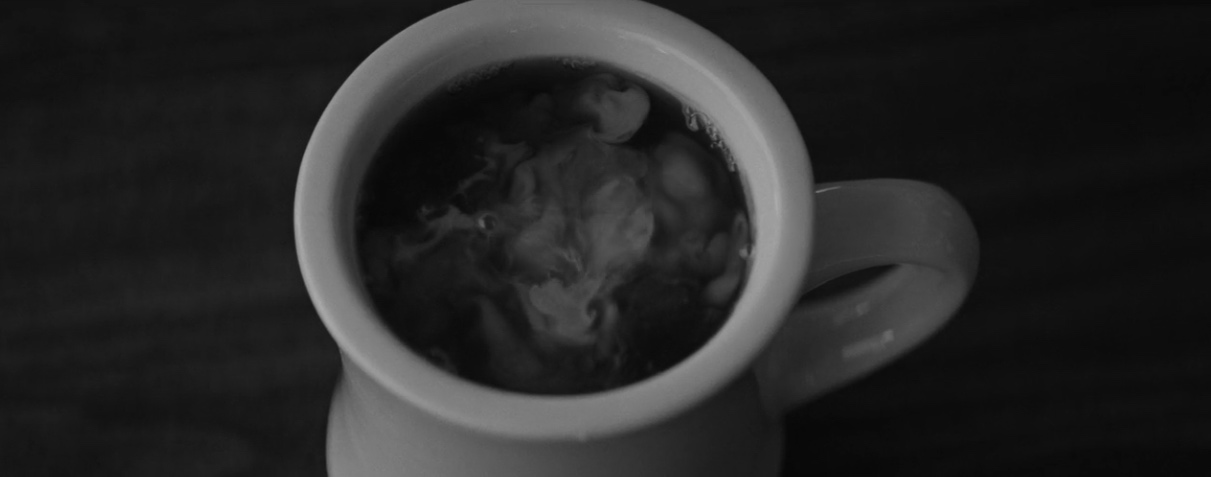Coffee At The Movies Episode 3: Looper
A few brief scenes set in a diner help ground the sci-fi classic Looper in reality.

“Bonjour Joe.”
“Bonjour Beatrix.”
“How’s the French?”
“Slow. How’s the coffee?”
“Burnt.”
This episode should probably be titled Diners At The Movies (actually, that’s a good idea for a future series…)
The importance of the American diner to movies cannot be overstated. A ubiquitous, easily recognisable location where people meet, talk, and drink terrible coffee, it’s the perfect backdrop for any scene heavy on dialogue or exposition. Easy framing and the ability to use a simple shot-reverse-shot structure make it a dependable option for scene setting.
The pivotal scene in Looper, Rian Johnson’s 2012 science fiction thriller, takes place in a remote, run down diner surrounded by cornfields in the year 2044. 40-odd minutes into the film, it is the first meeting between Joseph Gordon-Levitt’s Joe and his future self, played with typical jaded resignation by Bruce Willis.
(Spoilers, obviously).
In 2044, Joe works as a Looper - essentially a hit man - for a future crime syndicate that uses outlawed time travel to send enemies back to be easily disposed of.
Then, eventually, the Looper outstays his welcome.
“There's a reason we're called Loopers,” Joe says in voiceover. “When we sign up for this job, taking out the future's garbage, we also agree to a very specific proviso. Time travel in the future is so illegal, that when our employers want to close our contracts, they'll also want to erase any trace of their relationship with us ever existing. So if we're still alive 30 years from now, they'll find our older self, zap him back to us, and we'll kill him like any other job. This is called closing your loop.”
Because this would be a very short and boring movie otherwise, when he gets sent back Old Joe escapes, leaving Joe to track down himself to ensure his own survival.
OK so it sounds confusing (and it is quite confusing), but as with most time travel sci-fi the trick is to go with the flow, ignore the plot holes and contradictions, and enjoy the action.
The movie is a sprawling exploration of sacrifice, the idea of self and the ethics of time travel, and it all hinges on the showdown between the two versions of Joe.

In one of the film’s more sensible moves, Willis’s Old Joe immediately blows past any technical explanations of the physics of time travel: “I don't want to talk about time travel because if we start talking about it then we're going to be here all day talking about it, making diagrams with straws.”
The rest of the scene plays out as a tense standoff between the two versions of Joe, with the younger one understandably intrigued by the questions time travel raises, and the older one resistant to explaining.
This scene acts as an effective way to add background and exposition while at the same time tackling one of the central questions of the film, between the future we imagine for ourselves and the actual outcome: if we know our future, does that mean we can change it?
Gordon-Levitt, skirting the uncanny valley with his facial prosthetics, does a good job impersonating a young Willis. Willis, on the other hand, is always good for a turn as a world-weary killer looking for redemption. The nod to his past role in Terry Gilliam’s Twelve Monkeys, in which he played another time-travelling rogue, is not lost on the informed viewer.

While coffee doesn’t feature in a prime role, aside from one striking cream-mixing-into-coffee shot and a throwaway line between Joe and his waitress, the diner scene feels integral to the whole movie. Beforehand we are treated to world building and plot setup; after it’s essentially a straight chase between the two Joes.
The diner scene is a pause - a moment for character building and conflict between selves (“Your face looks backwards”, says Joe to Old Joe).
Diners offer movies (especially sci-fi) a sense of reality that is sometimes sorely needed, and a film like Looper, with all its futuristic flourishes and time travel nonsense, undoubtedly benefits from this grounding.
We go to diners for the endless cups of coffee, the conversations, the comfortable and recognisable spaces. A good movie, telling an immersive, expansive story, provides those things and more - well, maybe except for the endless cups of coffee.






